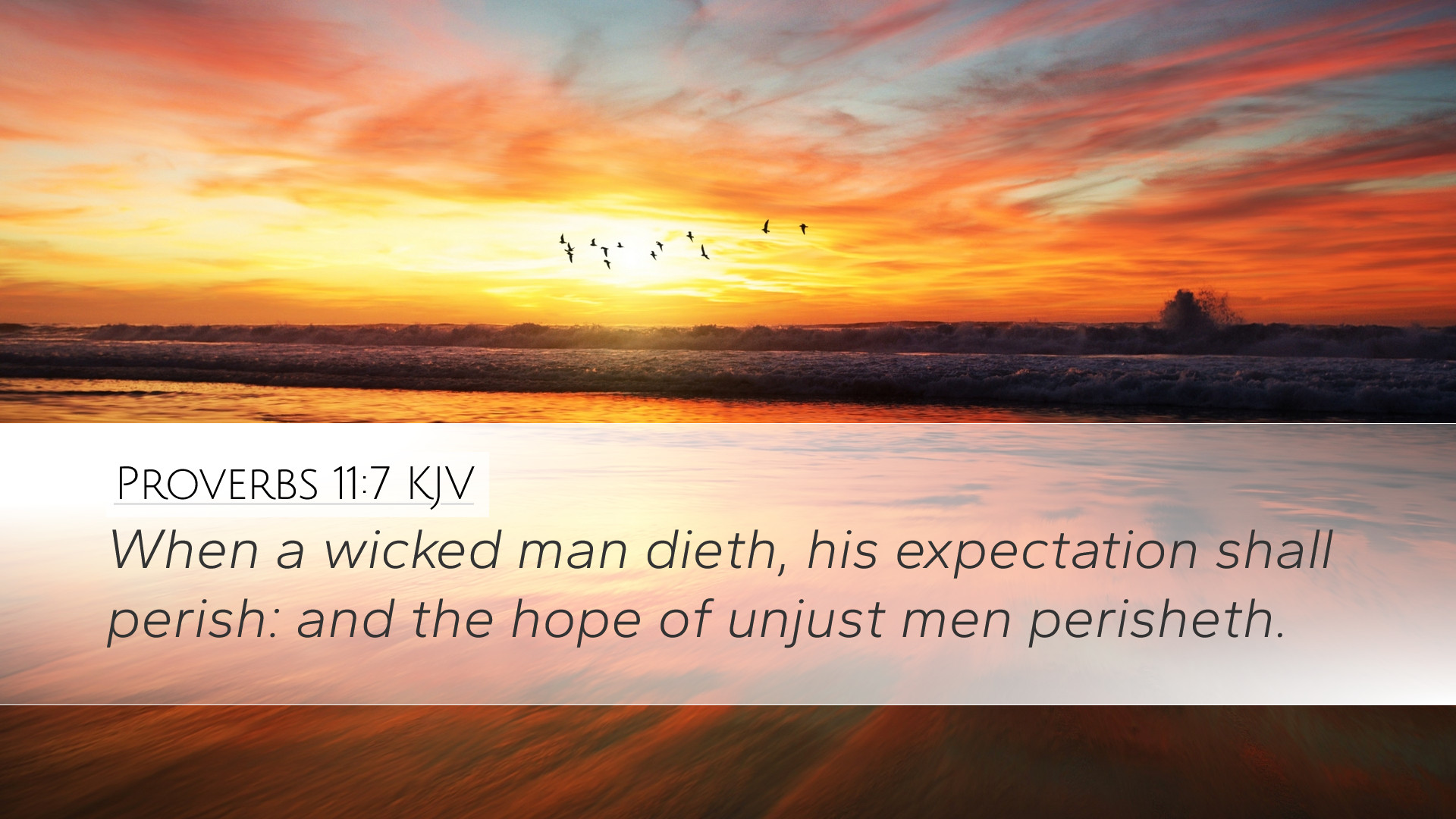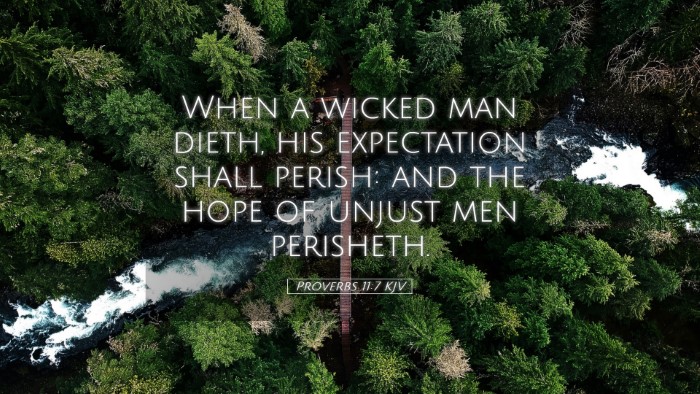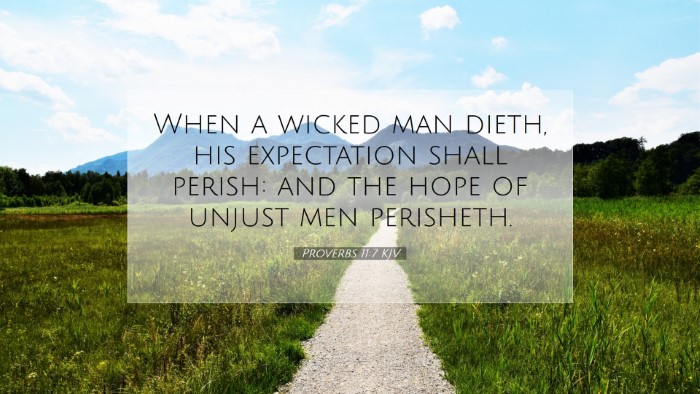Commentary on Proverbs 11:7
Verse: "When a wicked man dieth, his expectation shall perish: and the hope of unjust men perisheth."
Introduction
This verse from Proverbs encapsulates profound truths about the fate of the wicked compared to the righteous. The contrast between the human expectations of life and the divine will elucidates the nature of hope rooted in righteousness versus that which is found in wickedness. This commentary aims to explore the insights offered by public domain sources such as Matthew Henry, Albert Barnes, and Adam Clarke.
Exegesis of the Verse
At first glance, this proverb presents a stark reality: the demise of the wicked brings with it the collapse of their hopes. In this framework, the term “wicked” refers to those who live in opposition to God's ways, and their "expectation" can be understood as the ambitions, plans, and desires that are inherently flawed.
Matthew Henry's Insights
Matthew Henry suggests that the expectation of the wicked is fundamentally misguided. In his view, the wicked, during their lifetime, live in a state of delusion, believing they will achieve lasting fulfillment and success through their unrighteous pursuits. However, with their death comes a devastating realization—that these expectations are groundless. Their hopes never find a solid foundation, as they are built upon transient and deceitful pursuits.
Albert Barnes' Perspective
Albert Barnes elaborates on the theme of hope associated with the wicked. He argues that the “hope of unjust men” represents not only their personal aspirations but also their reliance on earthly wealth and power. When such individuals pass away, all their earthly securities and treasures vanish. Therefore, their death signals the end of any tangible hope they might have clung to while alive. Barnes emphasizes the futility of worldly hopes that do not align with God's righteousness:
- The wicked's expectations are often tied to the material world.
- Such hopes provide a false sense of security and peace.
Adam Clarke's Analysis
In his commentary, Adam Clarke takes a nuanced view of hope, suggesting that it is an expectation of good that comes from a righteous relationship with God. He contrasts this with the false hopes of the wicked, who are often engaged in deceptive practices. Clarke argues that the ultimate fate of the wicked serves as a warning for the living:
- Hope in God is eternal; hope based on wickedness leads to despair.
- The death of the wicked is a clear reminder of the consequences of a life without divine alignment.
Theological Implications
The implications of this verse are deeply theological, challenging readers to consider the nature of hope and righteousness. Hope, as defined in Scripture, cannot thrive in a heart that is not in communion with God. This raises essential questions for pastors and theologians:
- What constitutes a righteous life in contrast to a wicked one?
- How can one cultivate hopes that are rooted in faith and divine promise?
Practical Applications
For pastors and church leaders, this verse serves as a profound admonition to evaluate the basis of hope in their congregations. They can help the faithful to:
- Understand the transient nature of worldly aspirations.
- Encourage a pursuit of lasting spiritual value over temporary gains.
Conclusion
Proverbs 11:7 provides a sobering reminder of the fate of the wicked and invites readers into a deeper understanding of true hope. The wisdom gleaned from commentators like Matthew Henry, Albert Barnes, and Adam Clarke collectively emphasizes the importance of rooting our expectations in righteousness and the divine character of God. As believers ponder these insights, they are encouraged to seek hope that endures beyond this life—an expectation built on the solid rock of Christ.


